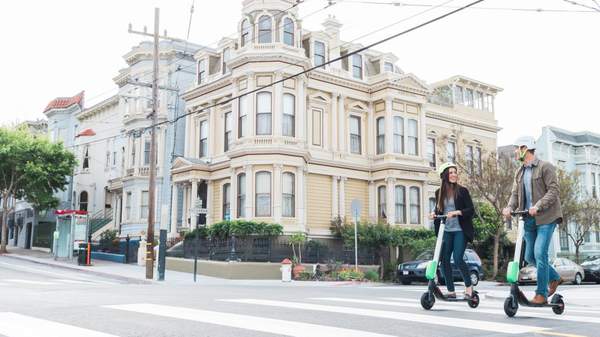Overview
California-owned transportation company Lime will have to remove its fleet of bright green electric scooters from Auckland streets by next week. The company was unsuccessful in renewing its e-scooter operation license with Auckland Council.
The e-scooters first landed in Auckland in October 2018 as part of a three-month trial. Since then they have been on and off the streets due to a series of brake malfunctioning issues. One person — 23-year-old Toben Hunt — was killed after an e-scooter incident and more than 2000 riders have been injured — with claims for ACC e-scooter injuries topping $1.7 million in Auckland alone.
Lime's e-scooters are unlocked using the company's app and have an approximate range of 48 kilometres and top speed of 27 kilometres an hour. Helmets are not supplied, however users are required to state that they will wear one as part of the terms and conditions.
Brisbane-registered company Wave — which were trialled with a lower speed limit of 15 kilometres per hour in heavy pedestrian areas — was also unsuccessful in the Council's application process. Both Lime and Wave will be required to deactivate their e-scooters by midnight on Monday, 2 December and have all devices off the streets by the following Friday.
Auckland Council says that applications "were assessed against the requirements of the Trading and Events in Public Places Bylaw and were considered to ensure that the applicants could demonstrate the ability to comply with the Rental E-scooter Code of Practice (version 3)."
Auckland Council and Auckland Transport have selected four operators (out of eight) to operate e-scooter businesses for the next six months. The successful operators include existing Wellington-owned operator Flamingo, plus Uber-owned Jump, Southeast Asia's leading scooter service Neuron, and Singapore-based company Beam. Up to 3200 e-scooters will be available for use in Auckland, across three tiers (inner city, outer city and the remainder of the region).
Auckland Council Director Regulatory Services Craig Hobbs, "As with each phase of our e-scooter programme, safety remains paramount. This includes safe use of the devices, through maintenance programmes and reporting requirements, and continuation of geo-fencing (slow speed zones)."
"We have also explored a number of enhanced initiatives, including the deactivation of scooters outside of licensed hours, a curfew in entertainment areas and parking enforcement and initiatives."
Read more about the council and AT's approach to e-scooters here.
